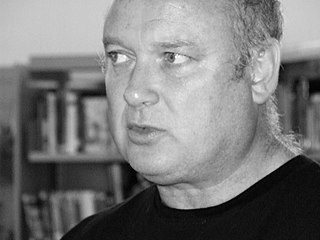A Quote by Jonathan Swift
The most ignorant person, at a reasonable charge, and with a little bodily labour, might write books in philosophy, poetry, politics, laws, mathematics, and theology, without the least assistance from genius or study.
Related Quotes
He who expects from a great name in politics, in philosophy, in art, equal greatness in other things, is little versed in human nature. Our strength lies in our weakness. The learned in books are ignorant of the world. He who is ignorant of books is often well acquainted with other things; for life is of the same length in the learned and unlearned; the mind cannot be idle; if it is not taken up with one thing, it attends to another through choice or necessity; and the degree of previous capacity in one class or another is a mere lottery.
We have heard much about the poetry of mathematics, but very little of it has as yet been sung. The ancients had a juster notion of their poetic value than we. The most distinct and beautiful statements of any truth must take at last the mathematical form. We might so simplify the rules of moral philosophy, as well as of arithmetic, that one formula would express them both.
Theology is a non-subject. I'm not saying that professors of theology are non-professors. They do interesting things, like study biblical history, biblical literature. But theology, the study of gods, the study of what gods do, presupposes that gods exist. The only kind of theology that I take account of are those theological arguments that actually argue for the existence of God.
In the decade of the 1980s, a massive and comprehensive study of religion in American life was undertaken by the Gallup organization. The results of the study were as terrifying as they were revealing. Americans, even evangelical Americans, are woefully ignorant of the content of Scripture and even more ignorant of the history of Christianity and classical Christian theology.
Genius is its own reward; for the best that one is, one must necessarily be for oneself. . . . Further, genius consists in the working of the free intellect., and as a consequence the productions of genius serve no useful purpose. The work of genius may be music, philosophy, painting, or poetry; it is nothing for use or profit. To be useless and unprofitable is one of the characteristics of genius; it is their patent of nobility.
Some fundamentalists go so far as to reject psychology as a disciplined study, which is unfortunate and polarizing. By definition, psychology is the study of the soul, theology is the study of God. Generally speaking, systematic theology is a study of all the essential doctrines of faith, and that would include the study of our souls (psychology).
I think the connection between poetry and theology, which is profound in Western tradition - there is a great deal of wonderful religious poetry - both poetry and theology push conventional definitions and explore perceptions that might be ignored or passed off as conventional, but when they are pressed yield much larger meanings, seem to be part of a much larger system of reality.
I must study Politicks and War that my sons may have liberty to study Mathematicks and Philosophy. My sons ought to study Mathematicks and Philosophy, Geography, natural History, Naval Architecture, navigation, Commerce and Agriculture, in order to give their Children a right to study Painting, Poetry, Musick, Architecture, Statuary, Tapestry and Porcelaine. (12 May 1780)
What is mathematics? Ask this question of person chosen at random, and you are likely to receive the answer "Mathematics is the study of number." With a bit of prodding as to what kind of study they mean, you may be able to induce them to come up with the description "the science of numbers." But that is about as far as you will get. And with that you will have obtained a description of mathematics that ceased to be accurate some two and a half thousand years ago!
For all the sublimity of art, physics, music, mathematics, and other manifestations of human genius, everything depends on the mundane, frustrating, often debased vocation known as politics (and its most exacting subspecialty - statecraft). Because if we don't get politics right, everything else risks extinction.





































